
![]()
Sweeping almost every award ceremony since its release last year, Gwanghae, The Man Who Became King (also titled Masquerade) was unsurprisingly a major box office success, going on to become the fourth highest grossing Korean film of all time. High box office ratings and oodles of awards (in one case, maybe too many awards) don't always guarantee a fun viewing experience, and can sometimes have a negative effect on how an audience goes into the film after the release has come and gone. However, I'm happy to report that for the most part, Gwanghae lives up to all its considerable hype.
Starring Lee Byung-heon in his first sageuk role, Gwanghae is admittedly only the second historical film I've seen (the first being Bow, The Ultimate Weapon), so I was pleasantly surprised to see the subject of monarchical reign tackled so often in sageuk get the big screen treatment. There are plenty of similarities to its television counterparts, sure, but what makes Gwanghae stand out isn't just its gorgeous visual appeal or its masterful acting—it's the message it conveys, one which many dramas scratch the surface of but have a hard time delving into.
Why are things different here? Because we're not dealing with a progressive king made so by birthright who just happens to be ahead of his time, but of a man from humble beginnings who suddenly finds himself the ruler of a country. (Unfortunately, unlike all our childhood fantasies, being a king or queen for a day =/= the best day ever.)
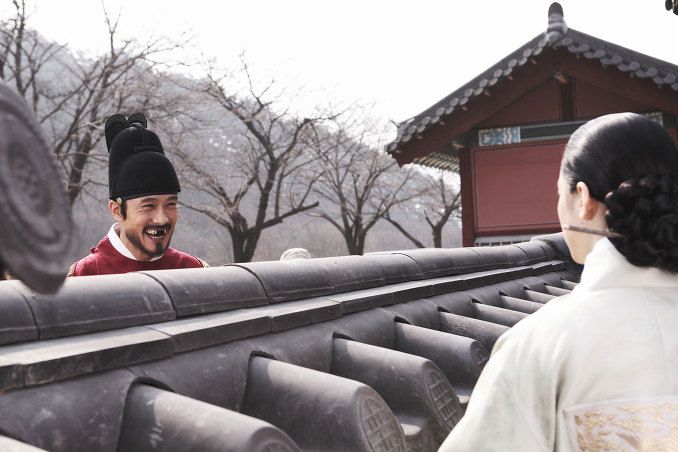
Gwanghae, The Man Who Became King is a fictional story which takes place during the non-fictional reign of the title's namesake, King Gwanghae, the fifteenth king of Joseon. But it's fiction with a twist—the story deals with a fifteen-day span of Gwanghae's reign that's just plain missing from history as it's recorded in the Annals of the Joseon Dynasty, with the only explanation for it coming from Gwanghae himself in the form of a written entry, "One must not record that which he wishes to hide."
That's a premise just ripe for all sorts of wild conspiracy theories, so what our story suggests is that an impostor took the throne for those fifteen days to act as a stand-in for the true king while he recovered from a poisoning attempt. In time, our common man's eyes open to the injustices of the court as well as the ludicrous nature of politics, and in doing so he becomes a champion of the people. Because unlike the monarch he's impersonating, and unlike the courtiers claiming to do what's best for the people, only he knows what it's like to be part of the collective. He is the people.
This Prince and the Pauper idea is certainly nothing new, but Gwanghae excels by bringing the focus inward, and onto the politics which shaped the nation all while dooming Gwanghae's rule to tragedy. Different interpretations abound for every king, but Gwanghae is mostly looked upon favorably for his efforts to help ease the burden of taxation on the poorest of his citizens, a progressive move that contributed to the coup which deposed him. That's why his name stands out among his fellow rulers like Taejo or Sejong—because he was overthrown, Gwanghae was never awarded a fancy posthumous name by history, 'cause history can be unforgiving like that.
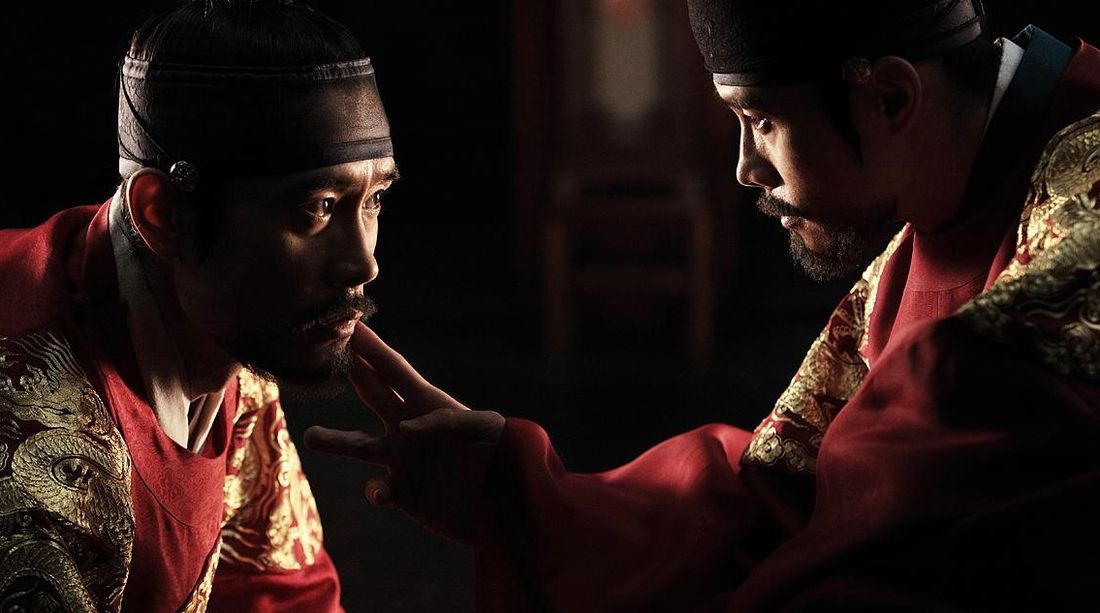
Lee Byung-heon plays two roles, KING GWANGHAE and his uncanny lookalike, HA-SUN. Our introduction to Gwanghae is fairly short and leaves us with little to go on as far as lasting impressions of his character, but we can intone that he's a fairly cruel man, or one who's simply been hardened by years of political strife as well as the constant fear that he's the target of a sinister assassination plot.
It's this ongoing fear that causes Gwanghae to seek out a man who resembles him, enough so that he can act as a decoy at night (and be killed in his stead in case of an attack). Fortunately, they find a jester who looks exactly like him (to the point where you'd think Gwanghae would wonder if he had a secret twin), and he's a performer perfectly capable of imitating Gwanghae's very solemn tone, to boot.
Ha-sun is more or less lured by money into taking this very risky job, which starts out simply enough… until Gwanghae is poisoned, and Ha-sun is forced to temporarily take his place to prevent complete political and social upheaval should the truth be revealed.
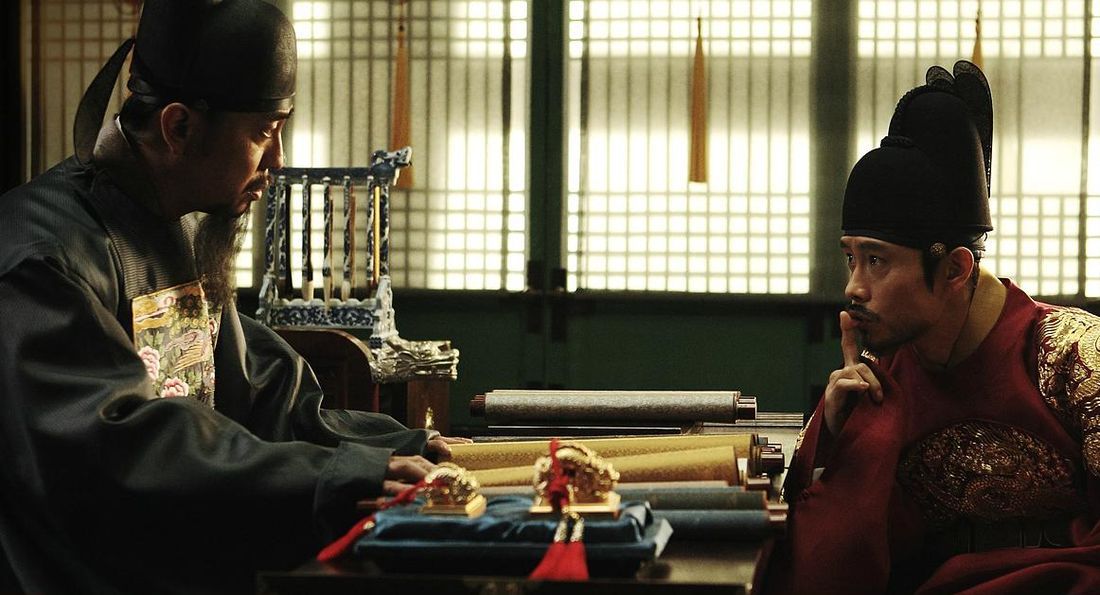
The main orchestrator behind this immensely dangerous plot is Gwanghae's Chief Secretary, HEO GYUN (Ryu Seung-ryong), a staunchly loyal and quick-thinking man who knows that politics is about give and take, something he can't quite seem to drill into Ha-sun's mind.
He's one of only two people who know about the kingly swap—there's also Chief Eunuch Jo (Jang Gwang), and the three of them end up working together to fool the court, to sometimes hilarious effect.
The comedy in Gwanghae is somewhat surprising, not just because there is so much of it, but because it's handled by drawing upon the absurdity inherent in the premise. Here's a common man suddenly thrust into kingly robes and forced to live a life he could never dream of. Not inherently very funny, right? But what Gwanghae does is take into account that Ha-sun would have no idea that the king doesn't use a chamber pot—instead he defecates into a specially designated bowl while in the audience of a roomful of court ladies who cry "Congratulations!" when he takes a royal poo. I don't know why I found this moment and others like it so funny, but I'd venture to guess that it's because these are things you don't really consider when you watch all those kings on television.
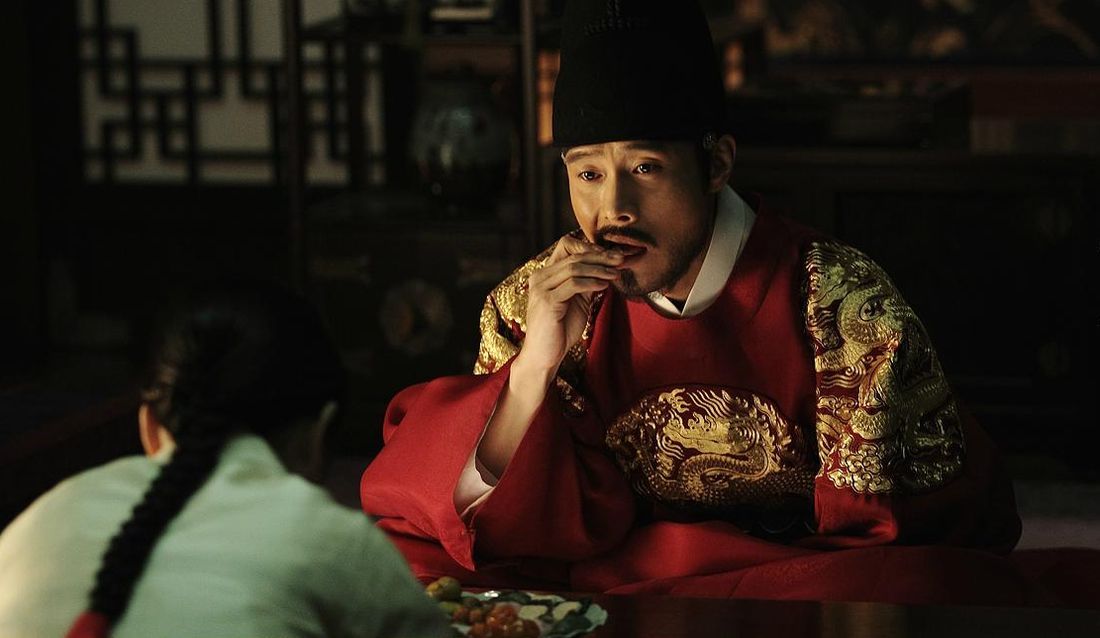
What starts out as a paid job for Ha-sun quickly turns into something more as he gets to know the people in the palace. These include the aforementioned Eunuch Jo as well as his young official royal taster Sa-wol, with whom Ha-sun finds a connection with because of an earlier misdeed he perpetrated against another girl her age.
Ha-sun may be able to look and act like the king, but it's in the smaller moments where he begins to realize just how much useless power the king actually possesses, and how much power the king should have but can't exert because of the delicate political balance. This comes to the fore through simple realizations on Ha-sun's part, like when he finds out that the court ladies of the palace can only eat the leftovers from his table (he'd previously been gorging himself), since they aren't allowed to cook for anyone but the king. So he starts with simple things like leaving plenty of food after his meals for the court ladies to enjoy, along with ordering things he knows Sa-wol enjoys so that she can eat them once he doesn't.
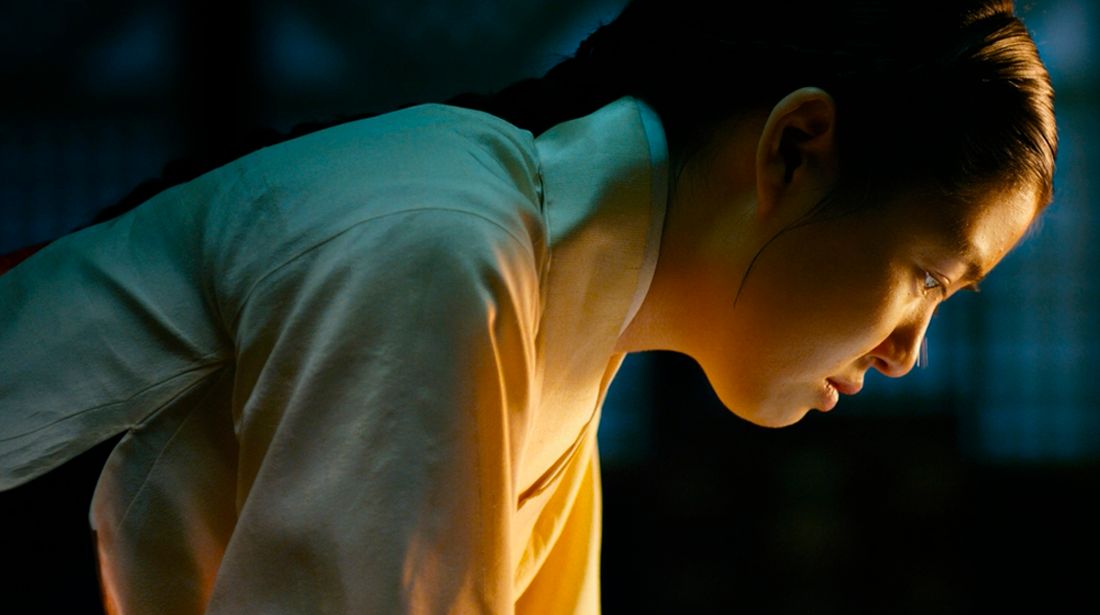
He's moved to tears by Sa-wol's plight when she reveals how she came into the palace, which involved being sold into slavery and separated from her mother when her father couldn't pay outlandish taxes imposed upon his meager amount of land. She's a direct result of the broken system Gwanghae has been unable to fix because of vicious retaliation by wealthy, landowning ministers—that taxes are imposed equally, and not according to how much land is owned. Anyone with an ear for modern politics will find what Ha-sun believes relevant today: "It's only fair to impose tax according to how much land you own. Those who have more should contribute more."
But this was as much a sensitive topic for Joseon as it is today, since taxes are (unsurprisingly) still universally abhorred. Being unaware of the intricacies involved in political dealmaking, Ha-sun is unable to grasp why, as king, he can't actually do anything he wants, and why everything must run through the court. (There's an argument about checks and balances being made here, only it's against the system of checks and balances and more for an absolute monarchy. Which you do end up rooting for in the scope of Gwanghae, if only because Ha-sun seems to have a knack for ruling.)
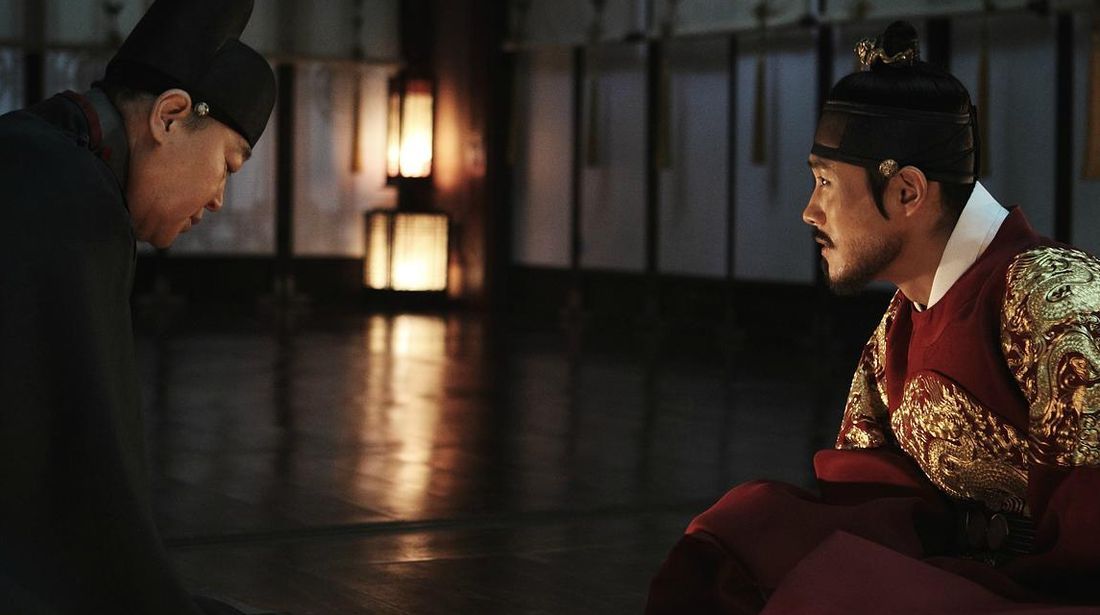
Another law on Ha-sun/Gwanghae's plate involves making identity tags mandatory for all citizens, and like the taxation law it's made relatable to Ha-sun through yet another court servant, Eunuch Jo. We first see Jo as just a silent spectator, seemingly appearing from the shadows at will, but as he begins to identify with Ha-sun—perhaps before he consciously realizes it—he also finds himself helping Ha-sun when the impostor king wants to learn just a little bit about the laws he's blindly passing into existence.
It's through their growing bond that Ha-sun finds out that Eunuch Jo willingly became a eunuch because of the identification tag system, since enforcing it has a direct correlation to citizens either fleeing the country in order to avoid forced labor, or men voluntarily castrating themselves. So naturally, all this input starts to form Ha-sun's opinions on the matter, only for these fifteen days he's actually in a position to do something to help his fellow man.
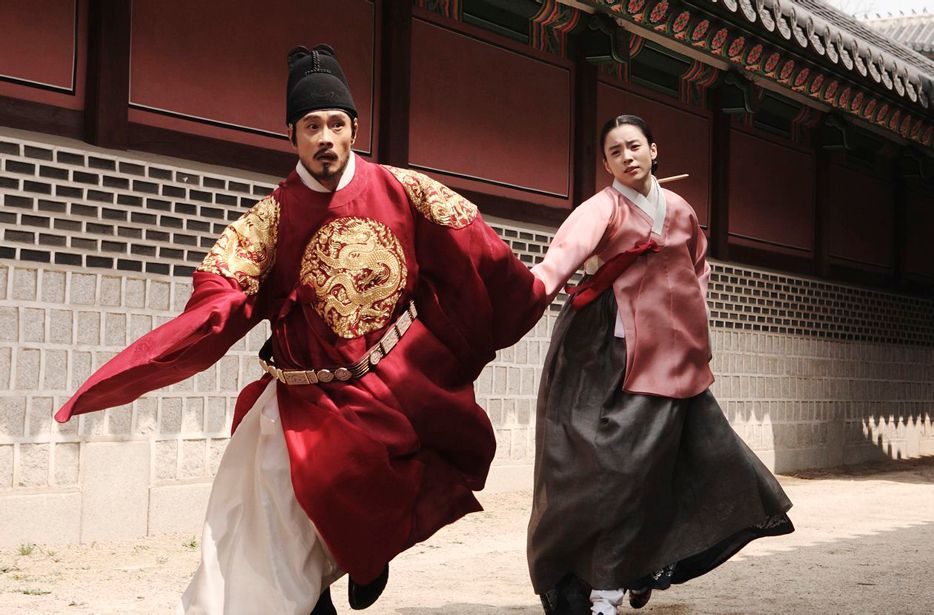
Ha-sun begins to grasp just how petty politicking can be when he acts on his own to impose the tax reform law, only to find that he's damned his brother-in-law in the process, since he's being held on exaggerated charges as a sort of hostage by the ministers against him.
This is how he comes to meet Gwanghae's wife, Queen Consort JOONG-JUN (Han Hyo-joo), someone who's repressed by palace etiquette to the point where smiles are foreign to her, though still adamant enough to declare that she'll kill herself if her brother dies. Ha-sun reveres her as a citizen does a queen and is shocked into helping her, only because he wants to do what's right, even though doing the right thing seems to be a severely punishable offense in the palace.
What's refreshing about how Ha-sun deals with the various problems presented to him is his sense of realism, and his ability to cut through all the political bullshitting that regularly goes on to get to simple truths. He's got a heart to help the people without the foreknowledge of how to play the right games with the court, and because he's been raised as a citizen he believes the king can do anything. He's wrong on that, but not completely, and slowly but surely he starts to win over everyone close to him – including Eunuch Jo, Sa-wol, and even Secretary Heo.
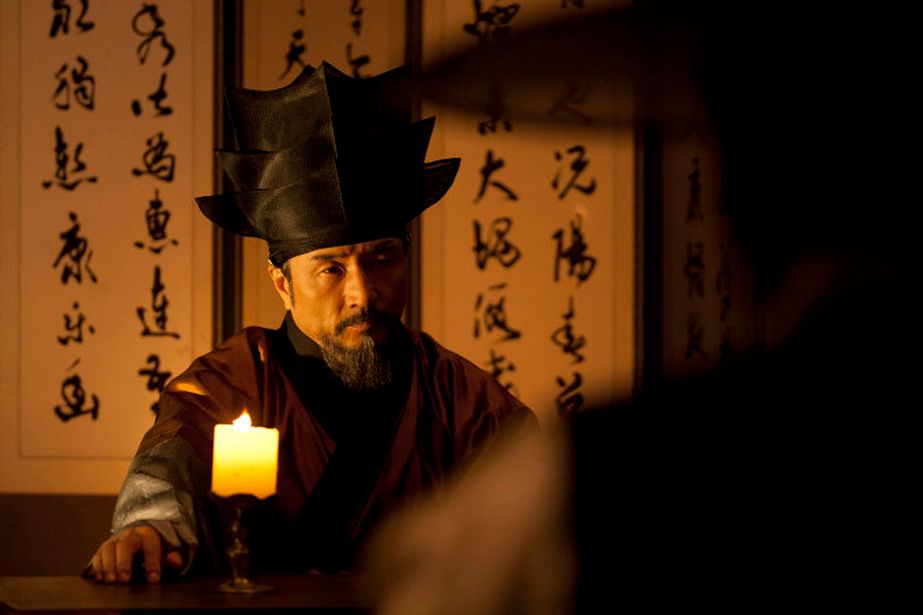
It's no secret that Gwanghae's greatest enemy is Minister of Interior PARK CHOONG-SEO (Kim Myung-gon), who singularly holds up the weakest aspect of the film—the villains. We're told who's against Gwanghae, and we get a few lines as to why (he's rich and doesn't want more taxes, he wouldn't like any law passed by Gwanghae even if he himself personally wrote it, because all ministers must be enemies to the king in every sageuk ever), but past that we're just supposed to take it on faith that the court just doesn't like Gwanghae.
Considering how the film explores deeper stuff like commonality across class divides and the responsibility of a monarch to rule with compassion, the scheming ministers seem superficial, one-dimensional, and evil for the sake of it—we're never allowed to connect to see their point of view, or why any view alternative to Ha-sun's might have been equally viable. That sort of connection is sacrificed so that Ha-sun gets to shine like a white knight, which is all well and good for the purposes of this film even though the conclusions are all very obvious. Gwanghae doesn't necessarily give us things to ponder and form our own opinions on, but rather tells us that Ha-sun has the best opinions because he's the one in this story with the most heart, and we're just along for the ride.
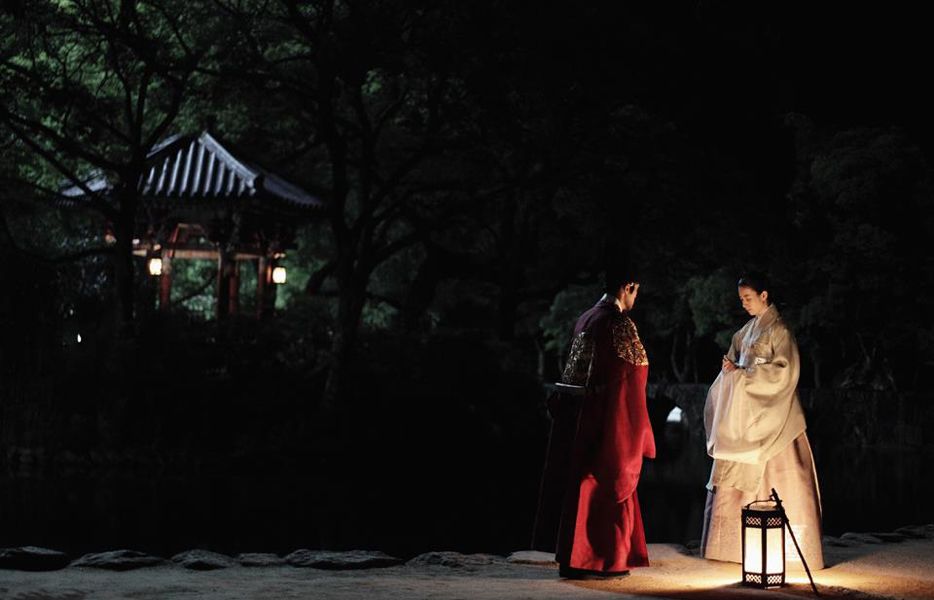
This tactic completely works for the essentially commercial film Gwanghae is, and it certainly doesn't bring the quality down one bit. But it does present a missed opportunity to elevate the experience to that next level, since the supposition that baddies are just bad because the script says so is the sort of thing that tends to wear after a while. Especially in sageuk, where baddies are bad because they're ministers, and kings are good because they're kings.
It's something of a shame that we don't get to know the real Gwanghae all that well, though the little we see of him isn't promising, especially when he feels no pity or compulsion to spare Ha-sun's life after he's essentially saved his hide for two weeks. We've come to know Ha-sun and like him, and so have the members of the court (that aren't the eeevil ministers), and it's hinted that Gwanghae has a thing or two to learn from the man who played him while he was away. That's something I would have liked to see explored in greater detail, but this story isn't about Gwanghae the king, it's about the man who became king. And this movie excels at telling just that tale.
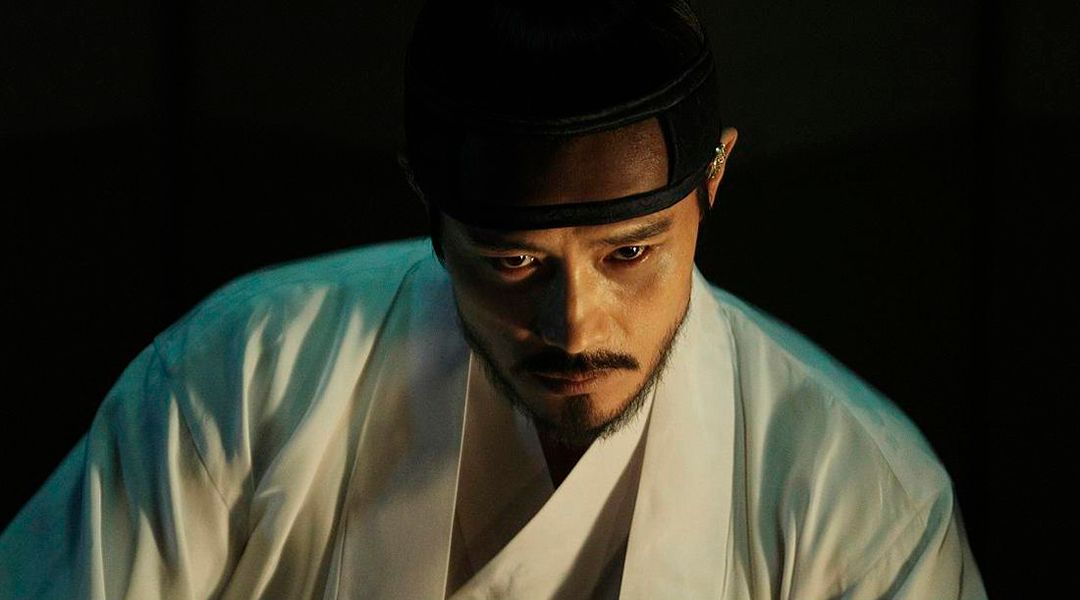
The performances were top-notch, especially from Lee Byung-heon, who exceeded all my expectations and then some. It doesn't hurt that I already held his acting abilities in high esteem (since he tends to command whatever screen he's on), but the range he displayed as Ha-sun/Gwanghae was pretty darn exceptional. Not only did he have to portray two very different men, he also had to convince us of Ha-sun's growth as a person from a money-driven jester into a true man of the people, and into a king that everyone could believe in.
Ryu Seung-ryong can shine even in a ramyun commercial, so it's no surprise that he's his typical awesome self in yet another successful film, selling any role he's given with panache and class. I can't say as much for Han Hyo-joo since we did see so little of her, though I can say that the characters I enjoyed most aside from the top two were Sa-wol and Eunuch Jo, both written and acted with believability tailor-made to tug at the heartstrings.
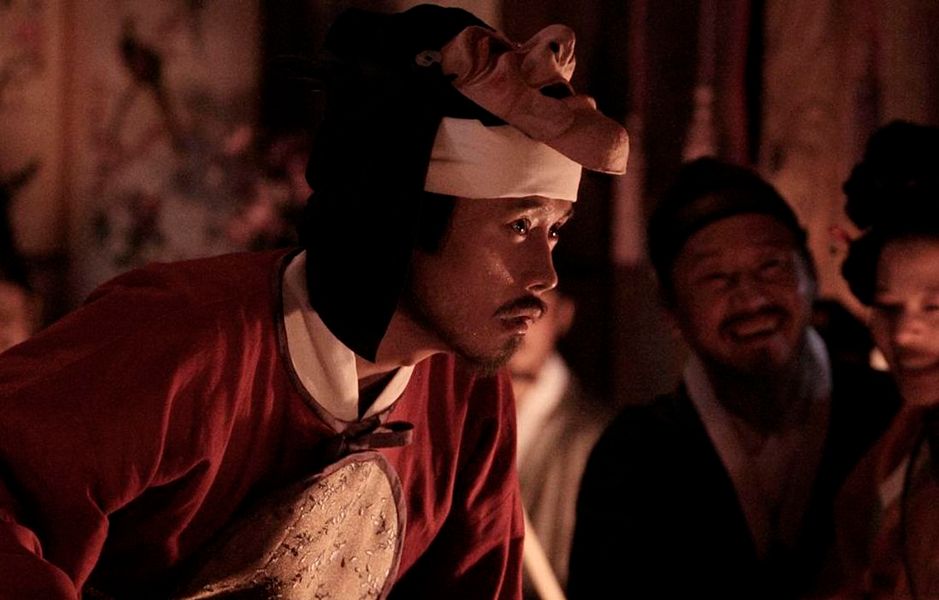
The Bottom Line: What Gwanghae excels at most of all is its portrayal of authentic character conflicts set against a sumptuous visual palette, aided in no small part by Lee Byung-heon's superb performance. Functioning as a politically-driven and surprisingly relevant human drama, Gwanghae asks us to evaluate the qualities of a man that set him apart from other men—regardless of upbringing or circumstance—and to find in those tendencies toward compassion and mutual respect those qualities which make him worthy to be a leader. 9/10.
RELATED POSTS
- Gwanghae, The Man Who Became King climbs box office charts
- Lee Byung-heon in the The Man Who Became King
- Lee Byung-heon, potential Joseon king
- Lee Byung-heon's black and white High Cut shoot
No comments:
Post a Comment